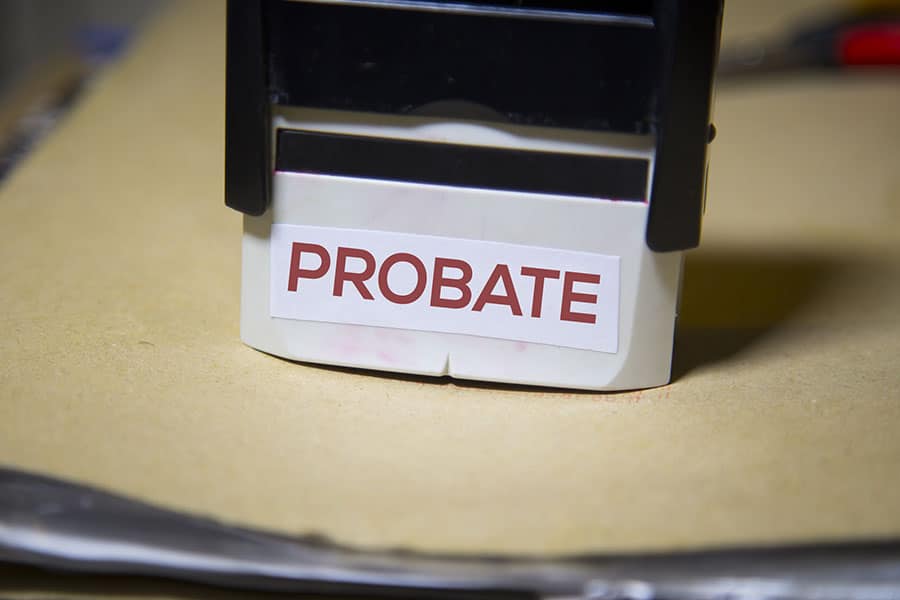Losing a loved one is devastating, and it brings a lot of life change. Part of the process of navigating life in its new state is to ensure you are taking proper steps for closing the deceased’s estate. There is a legal process you must follow, called probate.
What is the Probate Process?
The probate process is essentially the determining process for the administration of the deceased’s estate. If the person who has died completed their estate planning before passing, the administration is made easier.
Having a properly executed will in place ensures that their wishes regarding their estate are known. One of the primary determinations that come from having a will is having an executor or personal representative established for carrying out the instructions in the will.
The estate includes property and assets the deceased leaves behind. The estate is required to go through the California probate process, to ensure that the property and assets are properly distributed.
This begins by filing a petition for probate with the court. However, if the deceased established a living trust, the estate may avoid probate altogether. It is best to consult an attorney to determine the process for closing out the estate.
Factors that Can Affect the Probate Timeline
While probate cases in California have a reputation of lasting for an extended period, that’s not always the case. Some settlements can take place in as little as nine months. Others may take up to 24 months or even longer. The timeline for the probate process varies, as it is dependent on many factors.
1. Number of Estate Heirs or Beneficiaries
The calculation is simple. The more beneficiaries, the longer the probate will take to settle. For example, when you file a probate case in California, the attorney needs to send multiple documents back and forth between the beneficiaries. This process will require extra time if the beneficiaries are in many different locations.
Also, all the documents you submit in court require the executor’s original signature; emailed or faxed signatures are not accepted.
2. Disagreement Among Beneficiaries
It is rare that two beneficiaries, even if they are siblings, agree on the estate distribution. Disagreements are inevitable and may dictate how long probate takes to settle.
The executor may reach a solution, but beneficiaries may hire their own attorney to monitor the process in some scenarios. Asking for legal advice and retaining an experienced probate attorney’s services can save you from such situations.
3. Will Contests Can Dictate How Long Probate Takes
The first and most crucial step in the California probate process is to file a petition in court. Also, you have a set period to submit a written notice of the petition to the concerned parties and publish it three times in a newspaper.
During this period, someone may express an objection to invalidate the will. A will contest may be based on one of the following arguments or a combination of them:
- The will does not meet the proper legal formalities.
- The will is fraudulent.
- The deceased wrote the will under the undue influence of one of the beneficiaries.
- The deceased did not have the mental capacity to create a will.
When a will contest occurs, the probate proceedings may take longer to settle. Contested wills can usually come to a resolution after long court trials.
4. Deceased Did Not Leave A Will
The estate is still required to go through probate even if the deceased has not left a will behind. However, the probate court is directly involved in each step of the process. First, the judge will appoint an Executor for managing the probate estate. Second, according to California state law, succession laws are to determine how the property and assets are distributed to the heirs.
5. Taxable Estates May Delay the Probate
A court does not close the probate on a taxable estate until it receives a closing letter from the Internal Revenue Service. The court may also require a letter from the state taxing authority if state estate taxes are due. The process may take six to eight months from filing an estate tax return to receiving a response from the IRS.
6. Complicated Estates Take Longer to Probate
Probate of small and straightforward estates generally can close in a relatively short period. For instance, if you have an estate comprising a bank account and minimal personal property, distribution is easy. However, complicated estate assets, such as business shares and real estate, are trickier to distribute among the heirs. Thus, complex estates may take longer to complete the probate process.
Here to Help Through a Difficult Time
Finally, the length of time for probate also depends on the expertise of your probate attorney. California probate process can be tricky for you to handle on your own.
The Legacy Lawyers can help you navigate the probate process. Our law firm offers complete services and guidance, from completing the paperwork and filing the petition to representing you in court. Contact us at 800-840-1998 to schedule your consultation today!
